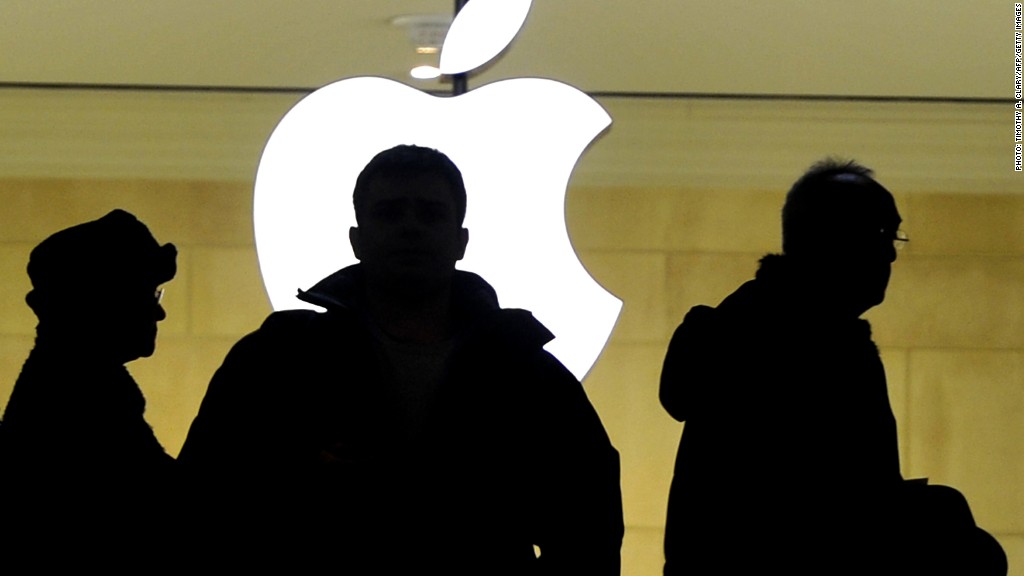
Apple (AAPL) is taking a big bite out of hedge funds.
Shares of Apple have plunged more than 35% since mid-September, when they hit an all-high of $705. And hedge funds held roughly 3.1% of Apple's outstanding shares, as of Sept. 30, according to FactSet.
Greenlight Capital, run by noted short seller David Einhorn, lost nearly 5% in the fourth quarter, and Apple was one of the biggest culprits, according to a source familiar with the fund's returns. For all of 2012, Einhorn ultimately returned 8% to his investors.
"The deterioration in Apple's performance is one of the contributors to why a number of hedge funds underperformed the S&P 500 since September," said Don Steinbrugge, a managing partner at the hedge fund consulting firm Agecroft partners.
The average hedge fund ended 2012 up only 6.2%, compared with the S&P 500's 16% return.
Related: Apple: A hedge fund liability?
As of early January, Einhorn remained bullish on Apple. In his year-end letter to investors, he said Greenlight bought more Apple stock, even as shares continued to slide.
So far, Einhorn's predictions about Apple haven't panned out. In May, he said that a $1 trillion valuation for Apple wasn't unreasonable. After losing more than $240 million in value since September, Apple closed Monday with a valuation of less than half that, or $422 billion.
Related: Exxon tops Apple as most valuable company
Not every Apple bull got burned. One of the year's best performing funds, Tiger Global Management, had one of the highest concentrations of Apple holdings, with roughly 10% of its stock portfolio in Apple as of Sept. 30.
The fund still managed to close out the year up 21%. It's unclear whether Tiger exited its Apple position or simply offset the drop in Apple's stock with other well-performing investments.
Other high-profile hedge fund managers appear to have timed the Apple pop and drop presciently. Leon Cooperman's fund, Omega Advisors, ended the year up 27%.
At the end of September, the fund had roughly 3% of its stock assets in Apple. It reduced its exposure in the ensuing months, but it's unclear by how much.
"We didn't like the way it was acting," Cooperman told CNBC earlier this month. "We still own it. We're just not as big as we were before."
Calls to Omega Advisors were not returned.
Related: Why the world's biggest hedge fund missed big in 2012
Apple's stock may continue to cut into hedge fund returns but the impact will likely be more muted in 2013.
That's because markets are expected to be less correlated this year than in the previous two, when stocks largely traded in tandem with one another.
Traders and investors say that stocks have recently been moving on company-specific news, rather than simply reacting to global economic forces. That gives hedge fund managers more places to find value and offset the so-called Apple effect.
"You can finally make money again on individual stocks on either the long or the short side," said Trip Kuehne, a founder and senior managing partner at Double Eagle Capital, a fund that chooses hedge funds for high net worth individuals and endowments.


